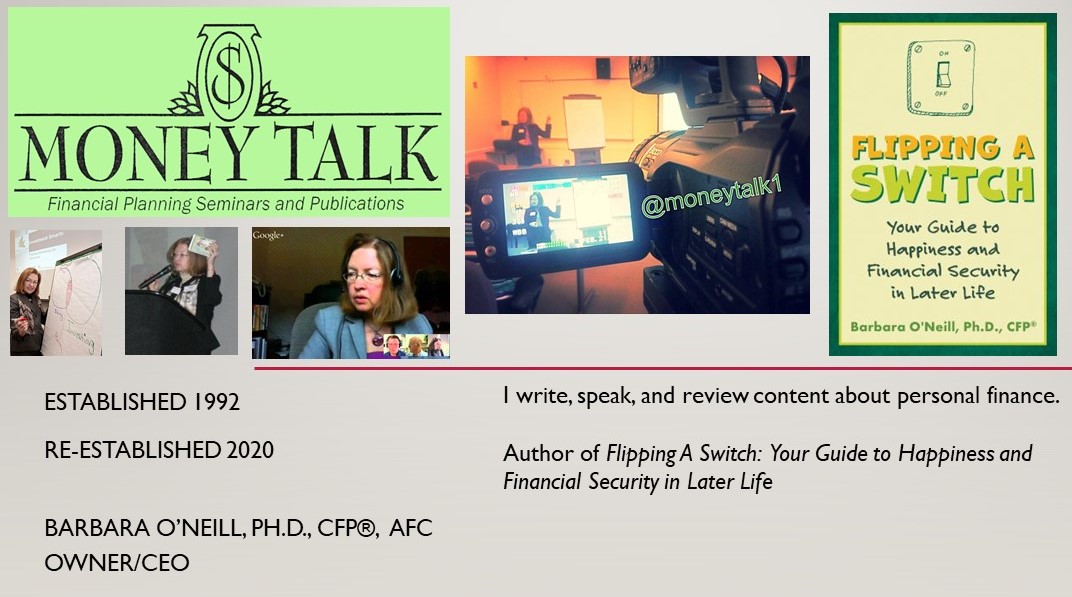Every American has been impacted by COVID-19 in some way. On
Monday, March 16, America started to shut down en masse. As we complete week 11
of COVID-19 related school, business, and organization closures, I continue to
collect information, recommendations, and insights regarding various financial planning
implications of the pandemic.
Some of these strategies are about finding resources for economic
survival. Others are prudent planning strategies to consider in light of recent
economic events. Below are ten suggestions gleaned from newspapers, webinars,
and podcasts:
¨
Find Allies
with Clout- Contact a state
assemblyman and/or senator if you have not been able to access state
unemployment benefits online or by phone after multiple attempts. It may be
helpful to have someone with contacts and authority break the logjam (note:
doing this can also work with late income tax refunds). Another strategy that
has reportedly worked for some people is to get the attention of state
Department of Labor officials using posts on Twitter.
¨
Become a First
Timer- Take advantage of income-based
public benefits that you may not have ever qualified for before. For example,
many people are applying for unemployment benefits for the first time ever in
their lives. A reduction in income may also have made you eligible to claim the
earned income tax credit (EITC) and/or Saver’s credit on your 2020 tax return next year.
¨
Create Asset
Buckets- Divide your portfolio into
different “buckets” of money. Especially for retirees, a large cash bucket
equal to three to five years of expenses that are not covered by guaranteed
income streams (e.g., a pension and Social Security) is advisable. Doing this
provides peace of mind to hold stocks and ride out market downturns. The stock
market hates uncertainty, which drives volatility. It is also forward-looking
and reflects what investors think will happen.
¨
Expect
Volatility- Accept the fact that the
value of your investments will rise and fall. This is part of having an
“investor’s mindset.” Build a portfolio that is well-diversified by asset class
(e.g., stocks, bonds, cash equivalent assets) and securities within each asset
class. Many financial planners have been calming clients who have done this by
saying: “this [a market shock, in this case the COVID-19 pandemic] is what we
planned for. Your portfolio was built for this.”
¨
Consider a
Roth Conversion- Act now to convert a
traditional IRA balance to a Roth IRA if COVID-19 has reduced your 2020 income
and you are in a lower marginal tax bracket. Federal income taxes on the
converted amount are due, along with tax on other income sources, in the year of
the conversion (i.e., 2020 taxes that are due in April 2021).
¨
Know the
Deadlines- Plan to make first and
second quarter 2020 estimated tax payments and file 2019 income tax returns by
July 15, 2020. Previous deadlines were postponed due to COVID-19. An extension
of time to file a tax return is available until October 15. Extensions are
available through the Free File platform or by filing paper Form 4868.
¨
Know the Rules- Automatically withhold or set aside at least 10% of your
unemployment benefit for income taxes. This includes both “normal” state
benefits and the extra $600 per week of federal government aid under the CARES
Act through July 31. Stimulus payments, however, do not have to be included in
taxable income for 2020.
¨
Plan Around Uncertainty- Act now to hedge the strong possibility of higher
future federal and state tax rates to pay for COVID-19 recovery measures such
as the Paycheck Protection Program, stimulus checks, and expanded unemployment benefits.
Another possibility is a future reduction in the estate tax exemption
(currently $11.58 million). Strategies to consider include moving to a more
tax-friendly location and making gifts to people and/or charities to lower
estate value.
¨
Be Careful with
Bonds- Stick with the highest quality
(AAA and AA rated) municipal bonds or bond funds if you are investing in bonds
to dampen the risk of stock in your investment portfolio. Many state and
municipal budgets are stressed and it is possible that those with the worst
balance sheets could default on their debt. Now is not a good time to “reach
for yield” on either municipal or corporate bonds that are below the top two
grades for credit quality.
¨
Shop Around
for Banking Services- Look for an
FDIC-insured bank that is paying a high annual percentage yield (APY) on savings
and money market accounts. With the Federal Reserve making several emergency
interest rate cuts in March to mitigate the COVID-19 economic slowdown, banks
also cut interest rates on their accounts, which are subject to change without
notice. The best savings account rates for May 2020 from
online banks range from 1.25% to 1.5%. Rates offered by many “brick and mortar”
commercial banks are much lower and closer to the national average of 0.06%.




